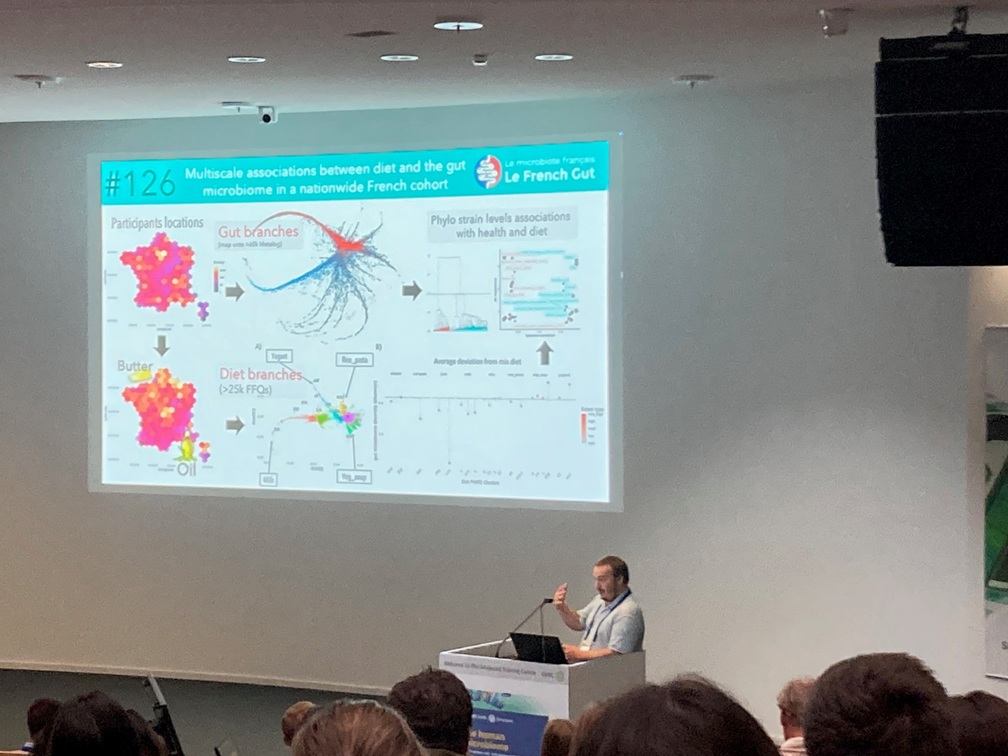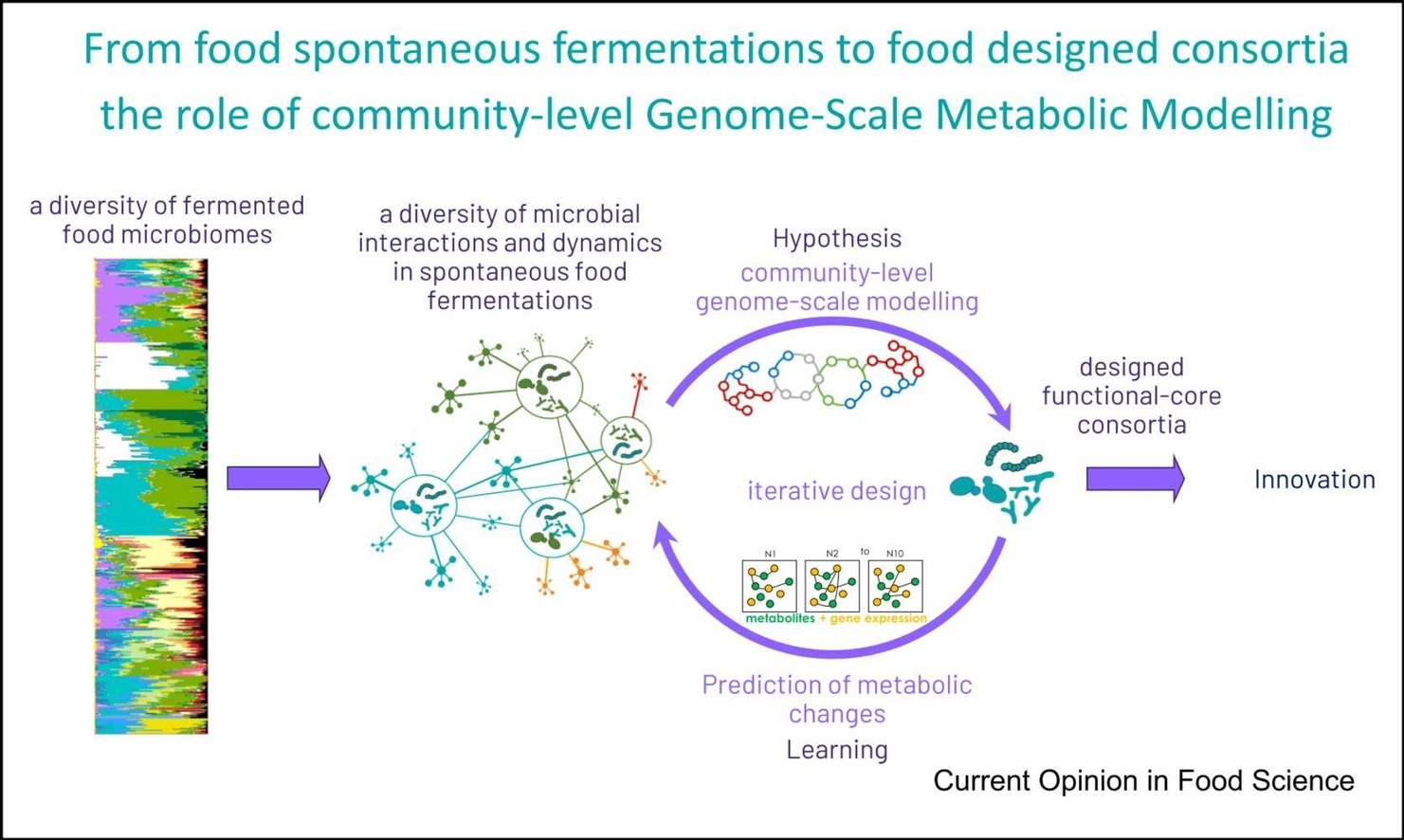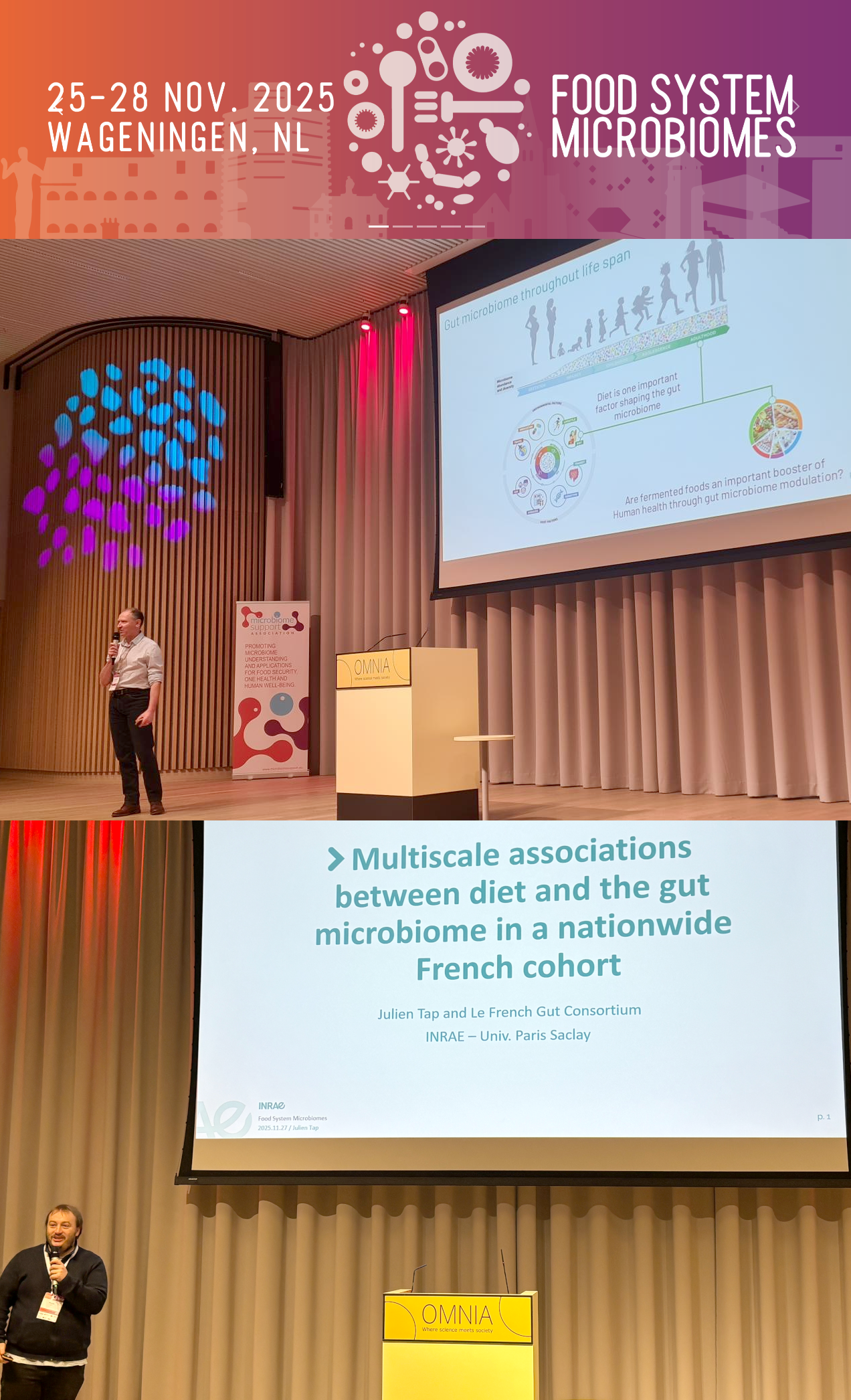Published: Sep 18, 2025 by FME Lab
The relationship between diet and the gut microbiome lies at the heart of both health and sustainability challenges. Understanding how dietary habits shape microbial diversity is key to developing new strategies for precision nutrition.
At the EMBL Human Microbiome Symposium, Julien had the pleasure of presenting preliminary results of the French Gut project, carried out at INRAE MetaGenoPolis in collaboration with AP-HP. This presentation sparked lively discussions, with many participants acknowledging the scale of the challenge: deploying such a project across the entire French territory.

The French Gut relies on an exceptional infrastructure, built thanks to the dedication of the entire MetaGenoPolis team. Their work made it possible to collect thousands of standardized dietary questionnaires, transform them into nutritional profiles, and link them with metagenomic data derived from stool samples. Their commitment to building this unique infrastructure is the backbone of the French Gut project. Bravo to the whole team!


